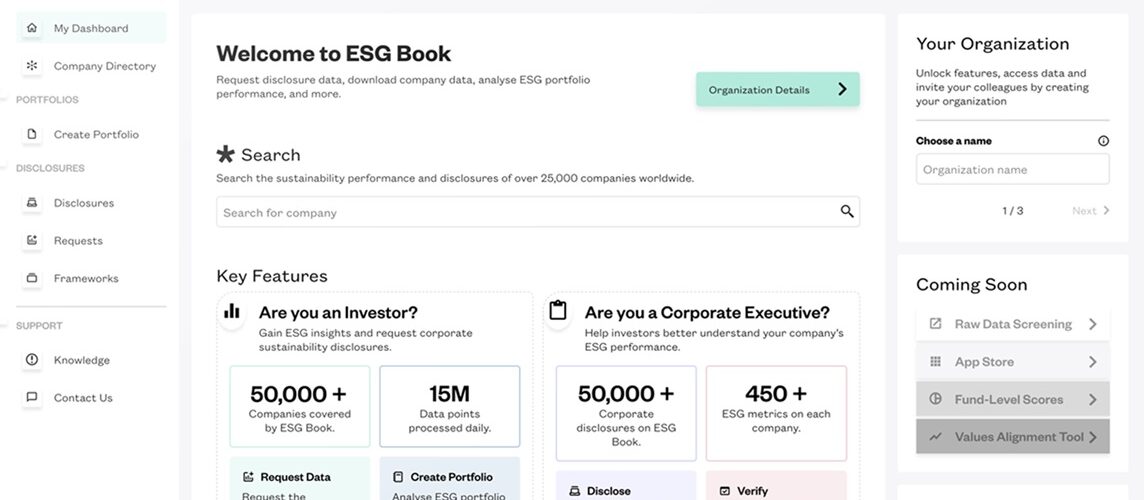Sustainability data and technology company ESG Book announced today the launch of Risk Score, a new tool aimed at enabling investors and corporates to assesses company exposure to critical ESG topics, based on the UN Global Compact (UNGC).
The UNGC is a consortium of companies and organizations across the globe committed to aligning their strategies and operations with a series of ten principles on human rights, labor, environment, and anti-corruption, and to take strategic action to advance broader societal goals such as the 17 UN SDGs.
According to ESG Book, the new Risk Score launches with coverage of over 10,000 companies, and is powered by more than 200 metrics to provide comprehensive analytics on each company’s exposure to the UNGC principles. The tool enables users to drill down from each company’s score to raw data and source documentation, and also includes point-in-time history for time series risk analyses.
ESG Book added that the tool was developed for use alongside its recently launched ESG Performance Score, an assessment of corporate sustainability performance inspired by SASB’s materiality framework.
Daniel Klier, CEO of ESG Book, said:
“The Risk Score is designed with both investors and corporates in mind. Investors can use the score as a universe selection, portfolio monitoring, and engagement tool by identifying companies that are more exposed to critical ESG issues, while corporates can use the score to systematically assess their own exposures, conduct peer comparisons, and identify disclosure gaps.”
Alongside the release of the Risk Score, ESG Book also released the results of a study based on its data relating to the UN Global Compact’s principles, indicating that U.S. and Canadian companies are three times more likely to risk violating UNGC environmental principles, but outperform on exposure to anti-corruption risk. European companies have lower risk exposure overall, while Asian companies face greater risk, particularly on anti-corruption.
[ad_2]
Source link


